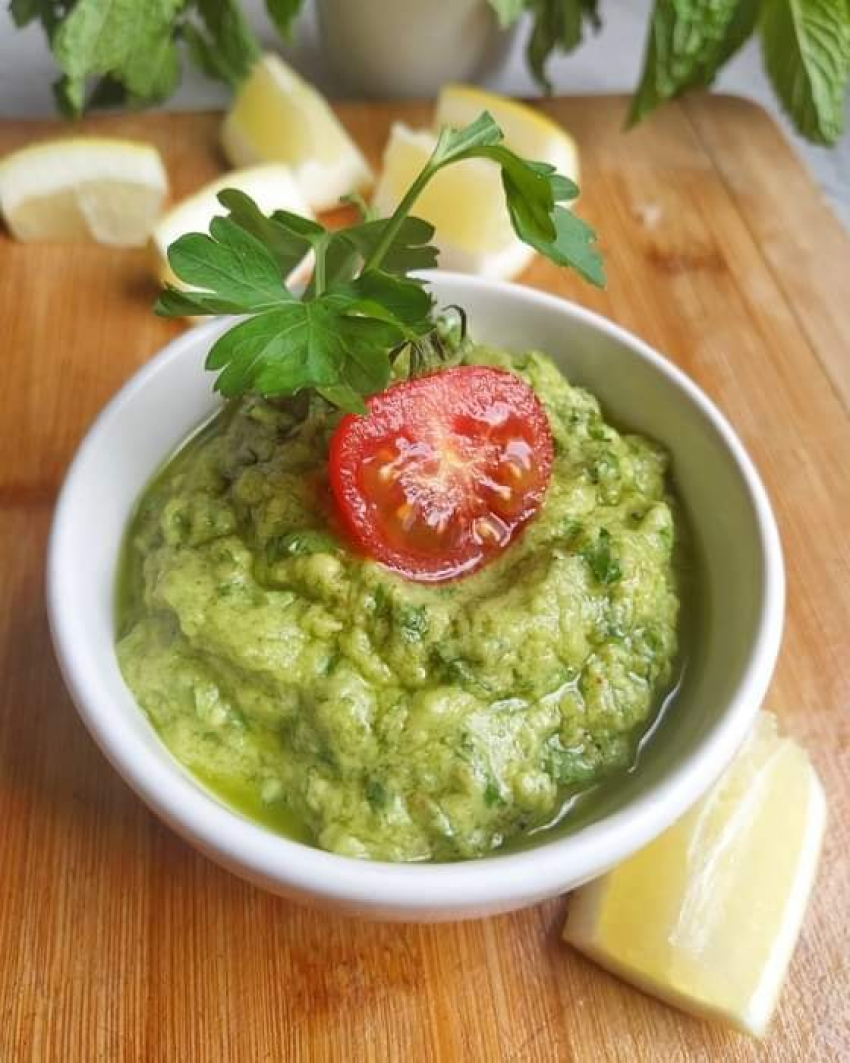The Many Mojos And How to Majar Them
Red mojo or green mojo?
This is always the most answered question on our Facebook page and the red version is slightly more popular. This is probably because it comes on the papas arrugadas (wrinkly popes as they are sometimes translated on local menus). Somehow, red and green are the only two mojo variations that make it onto restaurant tables. But there is far more to mojo than a binary choice.
From red and green to almond and avocado
Almond mojo is made from garlic, pimentón and peeled almonds pounded with olive oil in a pestle ands mortar. In La Palma they add smoked cheese to green mojo, in El Hierro fresh cheese to red mojo. In La Gomera they add hard cheese to the mojo and and call it almogrote.
Then there's the superb but rarely made mojo de aguacate based on avocado, herbs, green chili and cumin. Even with the standard red and green versions, every family has their own mojo recipes.
Oregano in the green? Parsley! What about tomato in the red? Roasted tomato! Are you crazy? That is not traditional! It is in my village!
The only thing people can agree on is that the best version is made by their gran.
The truth is that mojo isn't about the exact amount of chili, spice or vinegar in the mix. It's about the effort you put into mixing it.
Throw all the ingredients into a blender and after a good blitz you get a passable mojo. But for a great sauce use a big, stone pestle-and-mortar and spend a good 15 minutes majando el mojo; grinding everything together as you gradually add the oil. The constant mixing emulsifies the oil and garlic and really gets the chili and spices infused. Mojo that is majado looks different too; thicker and textured rather than runny and homogenous. Like lava rather than ketchup.
To make an ever richer mojo, add avocado...
Avocados and the Canary Islands
Avocadoes are from Central and South America and arrived in the Canary Islands centuries ago. Canarians were eating them in salads long before the brunch revolution made them a supermarket staple. As a kid I had avocado and jamon Serrano bocadillos for school lunch.
So mojo de aguacate isn't just a reworking of guacamole to hitch Canarian food to the avo bandwagon. It's a bona fide Canary Islands recipe made by local grannies for generations.
It's also delicious!
Mojo de aguacate: The recipe
I'd like to say that this is my gran's mojo de aguacate recipe but she was from Liverpool. Nana made a mean apple pie but never really dabbled with garlic and only ate avocadoes halved with Worcestershire sauce in the hole.
So instead this is my mojo de aguacte recipe honed during the lockdown and tested on two fussy kids.
You need...
- A large avocado (a ripe Haas variety with the crinkled skin is best; check ripeness by wiggling the stump of the stalk. If it falls off easily, the avocado is ripe).
- A mixed bunch of coriander and parsley (one or the other is fine too)
- 1 large clove of raw garlic
- 100 ml olive oil (a light extra virgin oil is best)
- 25 ml of red wine vinegar
- Teaspoon of coarse salt (the coarser the better for the majada).
- Teaspoon cumin (lightly toasted to bring out the flavour)
- One spicy green chili like a Habañero or a Thai chili (to taste)
- Lemon juice
Remove the avocado flesh and chop roughly. Chop up the parsley and coriander. Grind the remaining ingredients in a pestle and mortar (blender on pulse mode if you must) as you add the oil. Add the avocado and herbs and mix into a rough paste. There's no need to grind the herbs but it helps to bash them a bit to get ther flavours out.
Add a squirt of lemon juice to stop the surface from browning (especially if storing for later).
Serve as a dip with veggies, or as a dressing for fish.
May the mojo be with you!
Gran Canaria Info recommends:
- Default
- Title
- Date
- Random












